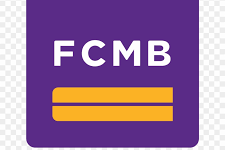FROM FARMING TO FREELANCING
How Nigerian Civil Servants Are Surviving on Side Hustles
SIDE HUSTLE
Dr. Jude Madu
10/2/20252 min read


When Mrs. Fatima Adamu, a civil servant in Kaduna, realized her monthly salary could barely cover food and her children’s school fees, she knew something had to change. She decided to convert one spare room in her home into a hostel for university students. What started as a single rental space has grown into three, providing her with steady passive income every month.
Fatima’s story is not unique. Across Nigeria, many civil servants are discovering that government pay alone cannot secure their financial future. With rising inflation and the cost of living increasing daily, side hustles for Nigerian civil servants have become a survival strategy. From farming to freelancing, Nigerians in public service are finding creative ways to supplement their salaries and build financial freedom.
In fact, recent reports show that inflation is eroding the value of a ₦70,000 minimum wage—in many cases, it barely covers basic needs. Meanwhile, the government has attempted to respond by approving pay hikes of 25–35 % for civil servants—though critics warn that these increases still may not be enough to keep up with the cost of living.
1. Real Estate and Property Rentals
As Fatima’s experience shows, property rentals can be a reliable source of extra income in Nigeria. Whether it’s converting extra space in your home into student housing or investing in small plots of land, real estate remains one of the safest and most profitable side hustles for civil servants seeking stability.
2. Farming and Agribusiness
Agriculture is one of the oldest but still most resilient side hustles in Nigeria. Mr. Sunday Eze, a secondary school teacher in Enugu, started a small vegetable farm behind his house. By selling his produce locally, he both reduces his household food expense and earns consistent income. Farming side hustles in Nigeria are sustainable because food will always be in demand—even during tough economic periods.
3. Transportation Services
Mr. Mark Idemudia, a civil servant in Abuja, decided to register his car on a ride-hailing platform after office hours. The extra income he earns monthly covers his children’s school fees and helps him save toward building a house. For others who can’t drive personally, entrusting a vehicle to a driver on profit-sharing terms is another smart move to generate extra income in Nigeria.
4. Online Freelancing and Digital Skills
Freelancing in Nigeria has become a major lifeline for many civil servants. Mrs. Ekaette Akpan in Calabar learned graphic design from free online resources. Today, she creates logos and marketing graphics for small businesses across Nigeria. Civil servants with skills in writing, tutoring, or digital marketing can access global markets—even working from home.
5. Small-Scale Trading
Mr. Ibrahim Sule in Kano turned ₦20,000 into a thriving business selling phone accessories and recharge cards. Trading in high-demand items like snacks, clothing, or gadgets is still one of the most accessible side hustles for Nigerians. The barrier to entry is low, and cash flow is frequent.
6. Poultry and Livestock Farming
In Osun State, Mrs. Bisi Adeyemi started poultry farming with just 20 chickens. During festive seasons, demand for meat skyrockets, and her profits multiply. Livestock farming is a side hustle civil servants can scale over time while keeping their main job—making it a reliable long-term income source.
Final Thoughts
Civil servant salaries in Nigeria often lag far behind the cost of essentials. But as Fatima, Sunday, Mark, Ekaette, Ibrahim, and Bisi show, survival demands more than the monthly payroll. From farming side hustles to freelancing in Nigeria, civil servants are building multiple income streams, pushing toward financial freedom for Nigerian workers.
Visit this page daily for your dose of financial sense to power up your wealth growth. Also, share with your family, friends and colleagues





